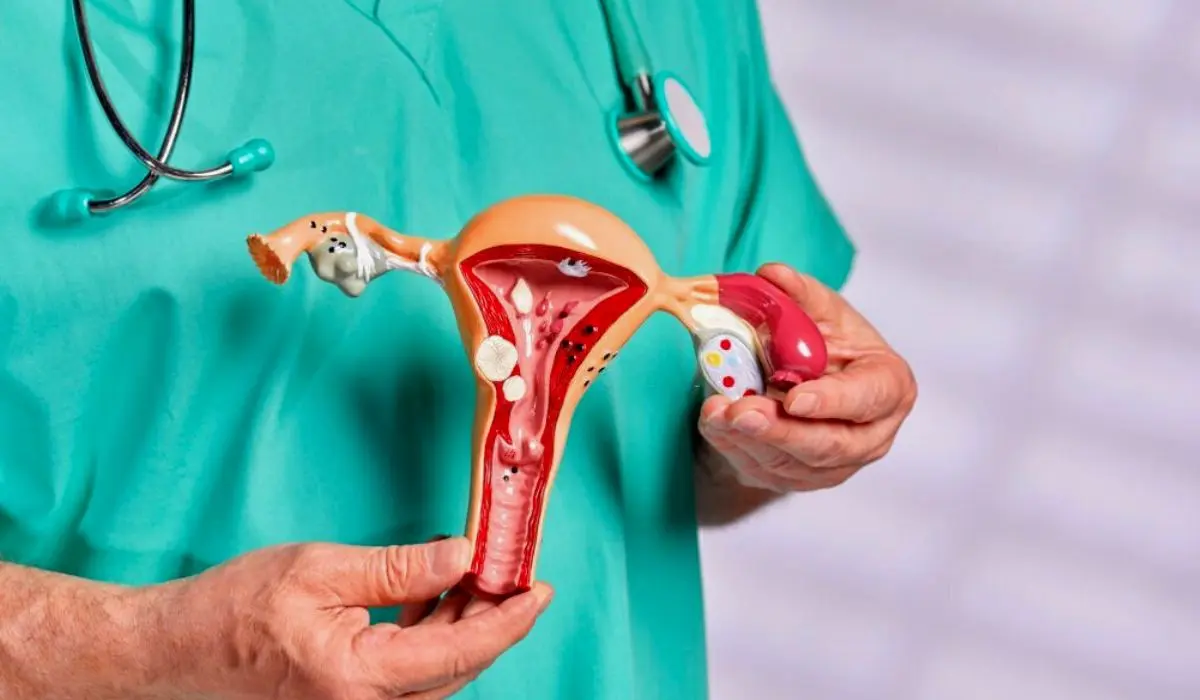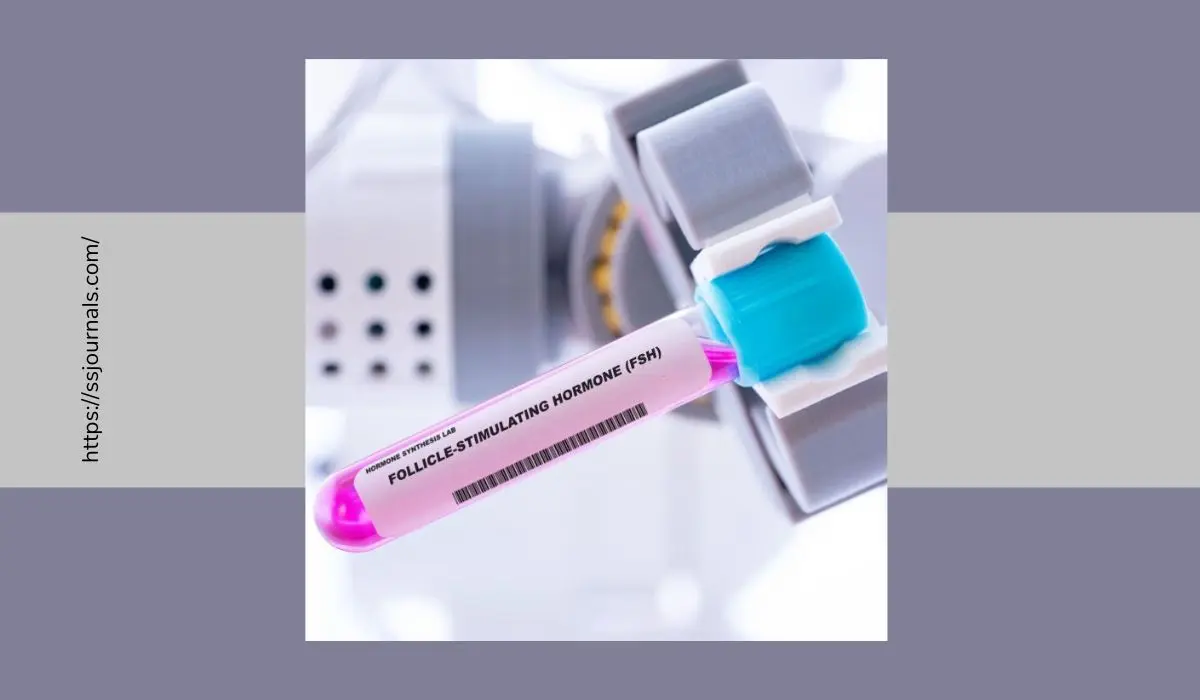The female reproductive system is a complex network of organs and hormones that work together to produce eggs, conceive a pregnancy, and nurture the development of a baby. One of the most vital hormones in this intricate system is follicle-stimulating hormone, commonly abbreviated as FSH. Produced by the pituitary gland,
FSH regulates critical reproductive processes in females such as ovulation, egg maturation, and fertility. Understanding the function and impact of this key hormone provides insight into the female body.
Follicle-Stimulating Hormone – Definition
Follicle-stimulating hormone, or FSH, is a gonadotropin hormone secreted by the anterior portion of the pituitary gland in the brain. True to its name, FSH stimulates the ovarian follicles – small sacs in the ovary that contain immature egg cells called oocytes.

In females, FSH primarily targets granulosa cells inside the ovarian follicles, binding to receptors on these cells. This stimulates the follicles to grow and mature.
FSH also promotes the production of estrogen by follicle cells. The levels of FSH fluctuate during the menstrual cycle, peaking just before ovulation to help ripen a dominant follicle.
What Is The Role Of Follicle-Stimulating Hormone In Female Reproductive System?
Follicle-stimulating hormone is indispensable for female reproductive functioning in the following ways:
✔ Follicle development – FSH stimulates follicles to grow and mature the oocyte inside in preparation for ovulation. It increases granulosa cell proliferation.
✔ Ovulation – The pre-ovulatory spike in FSH helps trigger the release of a mature ovum from the dominant follicle in the ovary.
✔ Estrogen production – FSH binds to follicle cells and promotes the conversion of androgens into estrogen which supports the reproductive cycle.
✔ Fertility and fecundity – Normal FSH levels are indicative of ovarian reserve and fertile potential. Elevated levels may signal reduced fertility.
✔ Puberty and sexual maturation – The onset of menstruation at puberty is triggered by increased FSH and estrogen production.
✔ Inhibiting hormone production – Via negative feedback, FSH inhibits further secretion of GnRH (gonadotropin-releasing hormone) and reduces its own production.
Thus FSH is indispensable to ovulation, egg maturation, hormone regulation, and overall female reproductive capability and fertility.
Factors That Improves The High Yield Of Follicle-Stimulating Hormone
There are several factors that can help optimize FSH levels and improve fertility:
✔ Maintaining a healthy weight and diet – Excess body fat alters hormone production. A whole food, Mediterranean-style diet benefits hormones.
✔ Reducing stress – Chronic stress raises cortisol which inhibits reproductive hormone production. Yoga, meditation, journaling, and other relaxation techniques help lower stress.
✔ Getting adequate sleep – Lack of sleep disrupts circadian rhythms and hormone secretion. Aim for 7-9 hours of quality sleep per night.
✔ Avoiding smoking and alcohol – Cigarette smoking accelerates the loss of ovarian follicles. Alcohol consumption reduces estrogen and FSH levels.
✔ Minimizing toxin exposure – Pesticides, BPA in plastics, and other toxins interfere with endocrine function. Use glassware and organic produce when possible.
✔ Having intercourse on fertile days – Having sex 1-2 days before ovulation takes advantage of peak fertility. Track cycles with ovulation kits.
✔ Taking supplements – Vitamin D, omega-3s, and antioxidants support hormone function. Maca root and CoQ10 may also increase FSH. Consult a doctor before using supplements.
Benefits Of Rise In Follicle-Stimulating Hormone
A temporary rise in FSH levels triggers ovulation and confers several benefits for female fertility and reproductive health:
✔ Release of mature egg – The preovulatory surge causes the lead ovarian follicle to rupture and discharge a mature ovum capable of fertilization. This is crucial for conception.
✔ Improved egg quality – Higher FSH results in better quality oocytes with intact genetic material that are optimally primed for fertilization.
✔ Thicker uterine lining – FSH boosts estrogen which causes the uterine lining to thicken to support implantation of a fertilized egg.
✔ Increased libido – Some women experience heightened libido just before the FSH/estrogen peak as the body prepares for ovulation.
✔ Fixed ovulation schedule – Tracking FSH helps pinpoint ovulation timing so intercourse or insemination can be properly timed.
✔ Enhanced fertility awareness – Noticing FSH patterns enables women to be aware of their body’s cycles and achieve or avoid pregnancy more effectively.
✔ Treatment for infertility – FSH injections can be used as ovulatory agents to induce ovulation in those struggling with infertility.
Thus, transient elevations in FSH just prior to ovulation play a major role in female reproductive physiology and fertility.
Conclusion
In summary, follicle-stimulating hormone, or FSH is an essential reproductive hormone produced in the pituitary gland. In females, it stimulates ovarian follicles and egg maturation, regulates ovulation, controls estrogen and hormone levels, and enables fertility and fecundity.
Maximizing and harnessing FSH improves reproductive functioning and fertility. Factors like diet, exercise, stress reduction, and toxin avoidance help optimize FSH levels in the body. Understanding the role of FSH provides women with greater awareness and control over their reproductive health.
Read More:- Disorders In Female Sexual Health – Causes And Treatment
FAQs
Q: Does FSH help regulate the menstrual cycle?
A: Yes, FSH is one of the hormones that control the menstrual cycle. It interacts with LH, estrogen, and progesterone in a complex feedback loop to regulate the cycle.
Q: At what point in the cycle is FSH at its highest?
A: FSH peaks just before the middle of the cycle, around days 10-14 for a 28-day cycle. The high FSH triggers ovulation on approximately day 14.
Q: Do FSH levels decline with age?
A: Yes, FSH gradually declines as women get older, contributing to reproductive aging and menopause as the ovarian follicles decline. This can begin in the 30s.
Q: Can high FSH indicate a problem?
A: Elevated FSH may signal impaired fertility due to low ovarian reserve, menopause onset, or conditions like polycystic ovarian syndrome. Testing and medical advice should be sought.
Q: How do doctors use FSH testing?
A: FSH blood tests help assess fertility status, menopause timing, and pituitary disorders, and aid in infertility diagnosis and treatment decisions. Both FSH and estradiol are tested on day 3 of the menstrual cycle.

